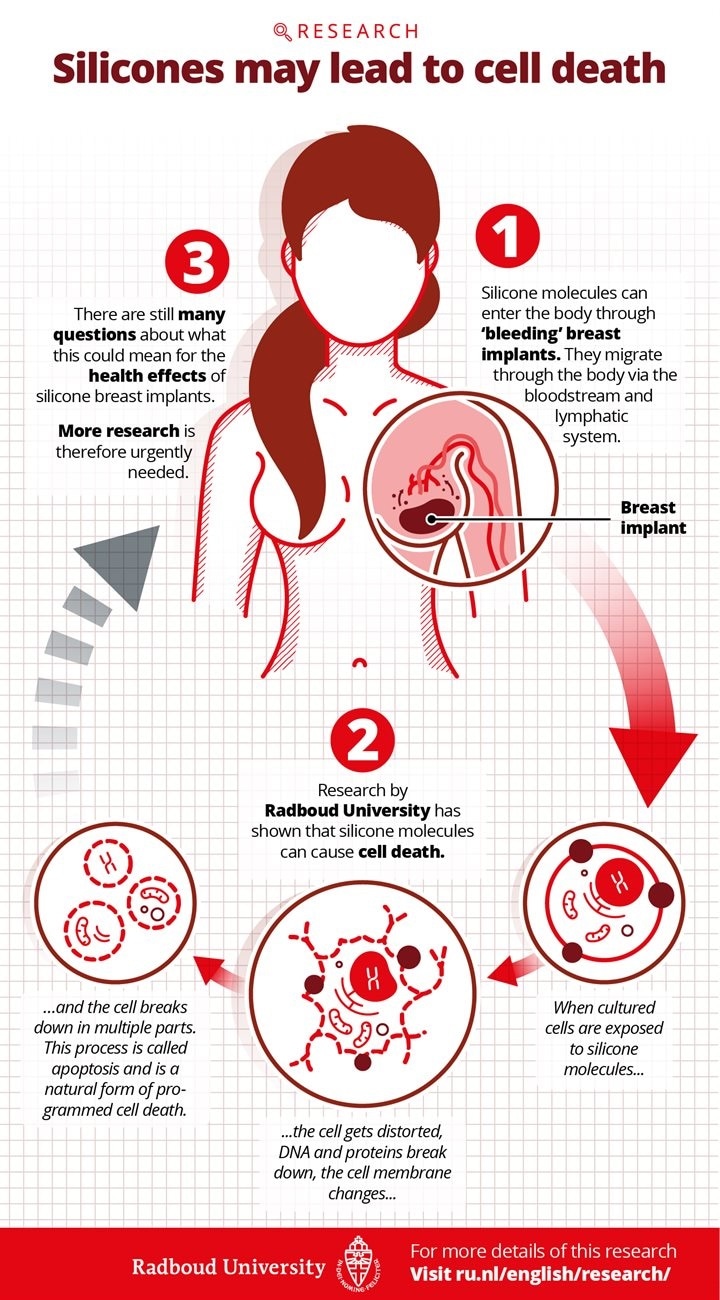Silicone molecules extracted from breast implants can trigger the processes in human cells that result in apoptosis.

Image Credit: Radboud University.
Radboud University researchers have described this finding in a new research published recently in the Scientific Reports journal on June 12th, 2020.
However, there are still many questions about what this could mean for the health effects of silicone breast implants. More research is therefore urgently needed.”
Ger Pruijn, Professor, Department of Biomolecular Chemistry, Radboud University
Researchers have debated the potential side effects of silicone breast implants for many years. There are known cases where such implants have resulted in various symptoms, like fever, muscle, and joint aches, severe fatigue, and concentration disturbance. Yet, there is no scientific research to demonstrate the effect of silicone molecules on human cells that could describe these side effects.
Silicone in the body
Breast implants are known to “bleed,” that is, silicone molecules from the implant move via the shell and penetrate the body. A 2016 study conducted by Dr. Rita Kappel, plastic surgeon, and Radboud university medical center discovered that silicone molecules can subsequently pass through the body via the lymphatic system or bloodstream.
The Radboud University researchers then asked themselves the follow-up question: what is the potential effect of silicone molecules on cells exposed to them?
Cultured cells
Experiments conducted with cultured cells demonstrated that silicones seemed to trigger molecular processes that result in apoptosis.
We observed similarities with molecular processes related to programmed cell death, a natural process called apoptosis that has an important function in clearing cells in our body. This effect appeared to depend on the dose of silicone and the size of the silicone molecules. The smaller the molecule, the stronger the effect.”
Ger Pruijn, Professor, Department of Biomolecular Chemistry, Radboud University
To analyze the impact of silicone on human cells, scientists have added tiny silicone molecules—which also appear in silicone breast implants—to three varied types of cultured human cells.
According to Pruijn, “One cell was more sensitive to the effect of silicones than the other two cell types. This suggests that the sensitivity of human cells to silicones varies.”
Open questions
The effects identified by scientists raise many new questions.
We observed that silicones induce molecular changes in cells, but we don’t know yet whether these changes could, for example, lead to an autoimmune response, which could in part explain the negative side effects of implants.”
Ger Pruijn, Professor, Department of Biomolecular Chemistry, Radboud University.
“Caution is advised with drawing conclusions based on these findings because we used cultured cells in our research, not specific human cells such as brain cells or muscle cells. Further research is required to get more clarity,” Pruijn concluded.
Source:
Journal reference:
Onnekink, C., et al. (2020) Low molecular weight silicones induce cell death in cultured cells. Scientific Reports. doi.org/10.1038/s41598-020-66666-7.